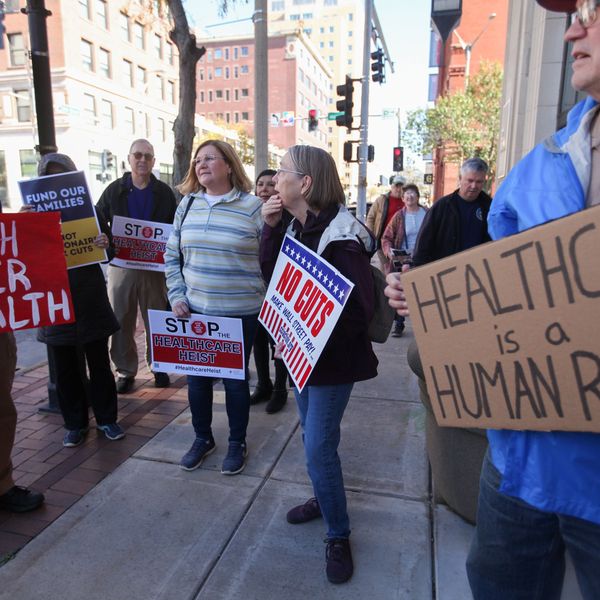Last week a wealthy New York widow, Annie George, went on trial for allegedly keeping an undocumented immigrant as a virtual prisoner in her home for over 5 years.
The victim, Valsamma Mathai, testified that she was forced to work long hours with no vacation or sick days, had to sleep in a closet and was not allowed to leave the mansion. George was ultimately found guilty of knowingly keeping the woman in the country illegally and may face up to five years in prison for that charge. She was spared from having to pay her the $317,000 that federal prosecutors calculated Mathai was owed based on the minimum wage and overtime hours she worked, but may have to pay a fine of up to $250,000. What the future holds for Mathai is uncertain.
George is not the first wealthy individual accused of needlessly mistreating and underpaying a domestic employee. In 2008, Varsha and Mahender Sabhani, a millionaire couple from Long Island, were both convicted and sentenced to prison time for keeping two Indonesian women in slave conditions for years. In addition to being paid next to nothing and forced to sleep on mats on the floor, the women were beaten, burnt with cigarettes and scalding water, cut with a knife and on one occasion forced to swallow hot chili peppers. While these kinds of socialite/slave brutality stories tend to grab our attention because they make great headlines, the true extent of abuse of domestic workers and the almost complete lack of protection afforded them under our current labor laws tends to go unnoticed.
Mathai's case came to the attention of law enforcement when her son called the National Human Trafficking Resource Center (NHTRC)'s hotline. According to the NHTRC's data, the most frequently reported labor trafficking calls by far to their hotline are about cases of domestic servitude. As Bradley Myles, the NHTRC's executive director, says:
"Trafficking tends to thrive when a particular trafficker or individual perceives a low degree of risk and they can make some sort of financial gain either by making a profit or saving costs."
It's easy then to see why traffickers would prey on vulnerable low-skill workers. But, while the assumption is that most labor trafficking victims are undocumented immigrants, in fact they make up only 41% of the domestic servitude calls the hotline receives, while American citizens account for 43%.
This is a very telling statistic and in all likelihood has much to do with the extraordinary fact that domestic workers in America are not protected by basic labor laws. In 1935 as part of his "second new deal", President Roosevelt signed the National Labor Relations Act into law, which banned unfair workplace practices and protected workers rights to unionize. In a concession to southern lawmakers, however, who wanted to maintain slave-like conditions for African Americans, domestic and farmworkers were deliberately excluded from the act. It is no longer just African Americans who bear the brunt of this exclusion. But it should come as no surprise that it is these two categories of workers, which are comprised mostly of immigrants but also poorer American citizens, who are the most open to exploitation by employers and most vulnerable to trafficking.
According to the US Department of Justice, human trafficking is the fastest growing criminal industry in the world. As Myles explains:
"The trafficker may perceive that society is not going to care about victims who are marginalized or they are not going to care about the plight of a person working in a private home, so it's perceived as low risk."
And let's face it, thanks to the exclusion of domestic workers from basic labor protections, they do end up living in our margins. Society really doesn't care about the people who clean our houses and mind our kids. How many well to do families do you know who think they are going above and beyond if they afford their nanny the luxury of a paid vacation day? It's no wonder then that among this marginalized class of workers, the most vulnerable become obvious targets to traffickers.
So what can we do to help them? At the back end of the trafficking equation, considerable progress has been made to prosecute traffickers and to help victims thanks to the passage of the Trafficking Victims Protection Act, which was signed into law in 2000 and has been amended and improved upon five times since. But at the front end, when it comes to protecting potential victims before the fact, targeted legislation which would empower domestic workers (and other vulnerable groups) would be really useful.
The Domestic Workers Alliance in conjunction with other advocacy groups have been involved in grassroots efforts to get legislation passed to protect these vulnerable workers. Finally in 2010, after a six year campaign, the Domestic Workers Bill of Rights was signed into law in New York State. In 2011, a similar bill moved through the California state assembly but is still awaiting passage. So that means there is one state in the union where progress has been made, another where progress may be made and 48 states where domestic workers continue to be totally exploitable.
What this all means for trafficking victims like Valsamma Mathai is that while they may get their day in court, and if they are lucky may be able to claw back some of their lost pay, they can never be truly compensated for the lost years or for the trauma they endured at the hands of abusive employers. The concession that was made to fans of slavery in the early 20th century has created a new kind of slave trade that is thriving in the 21st century. It's high time to remedy that, I'd say, and a good place to start would be to make sure all workers enjoy equal protection under the law.




